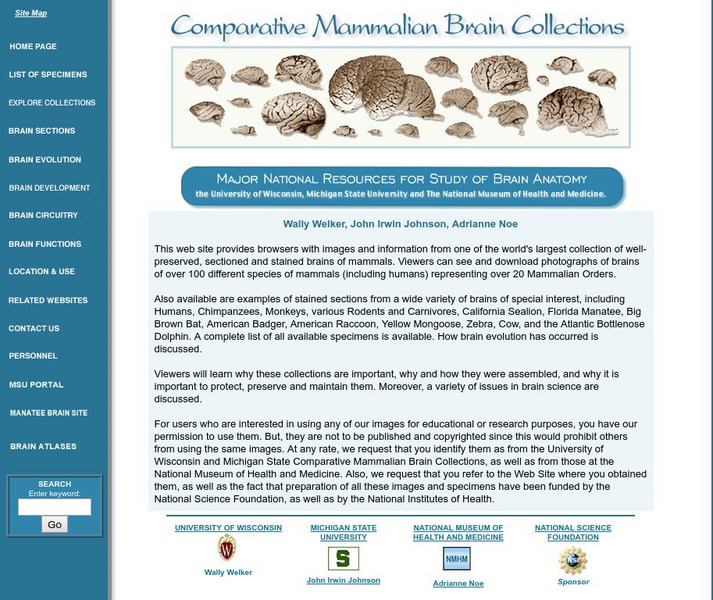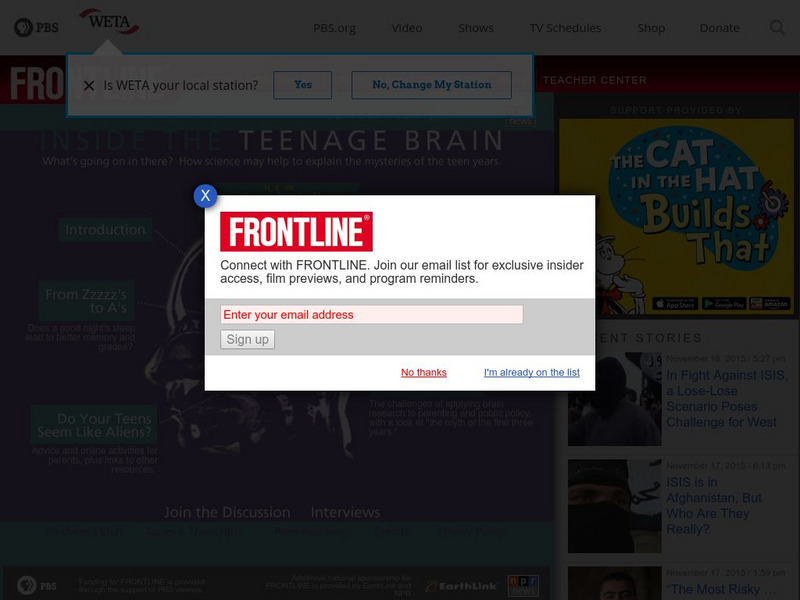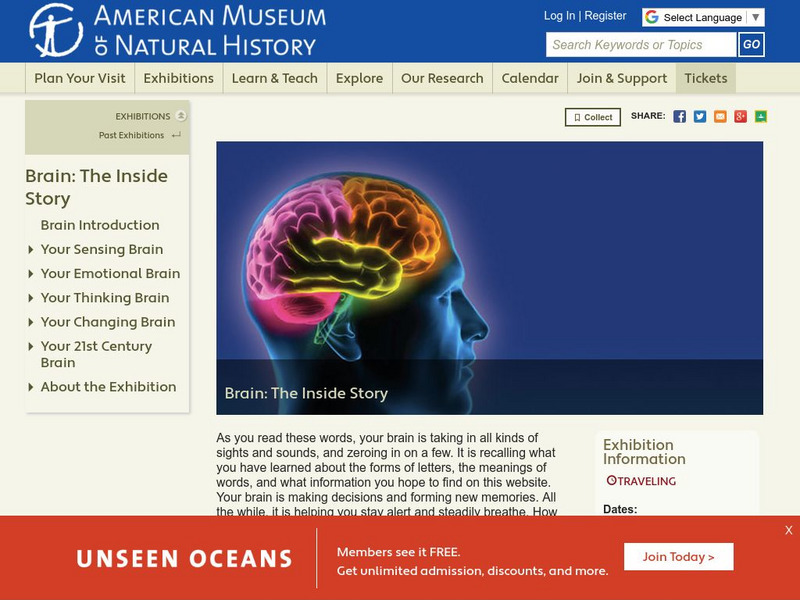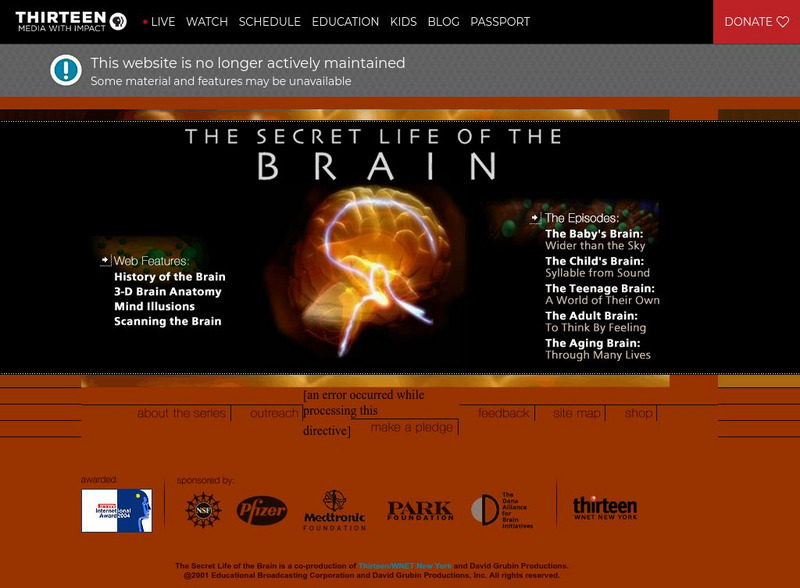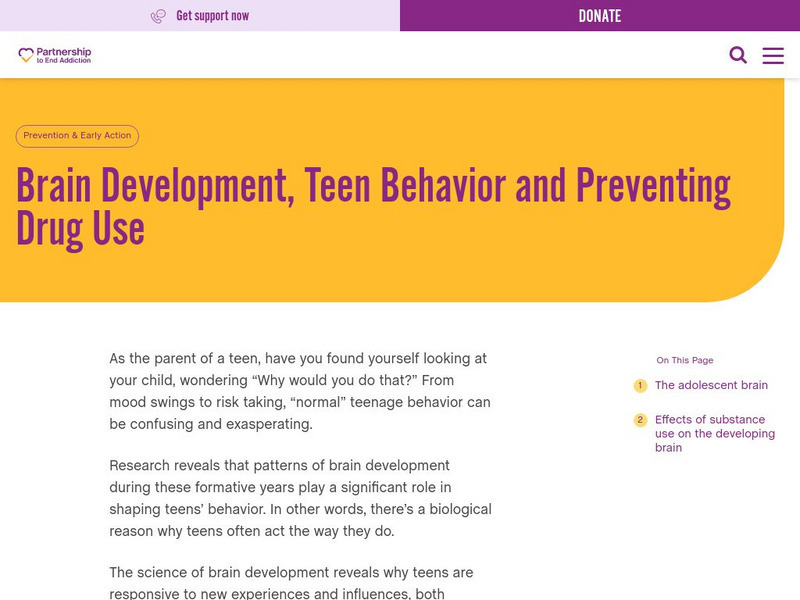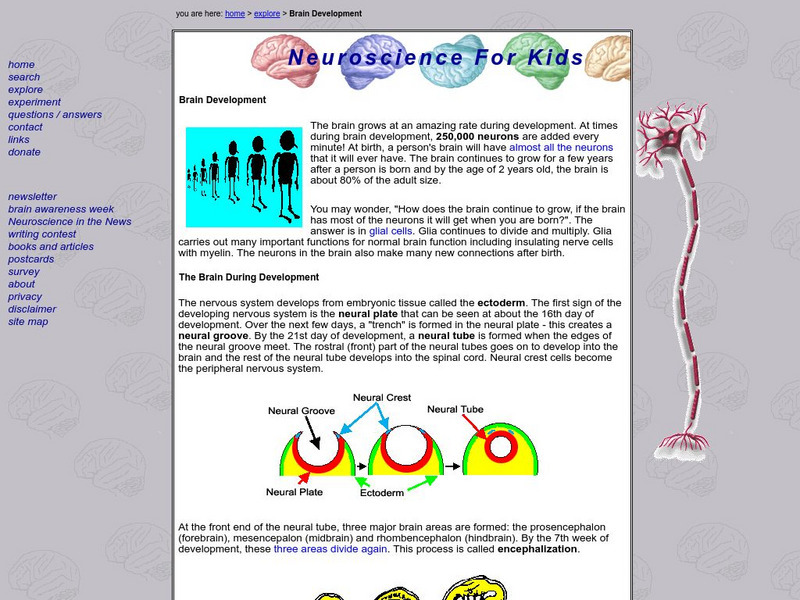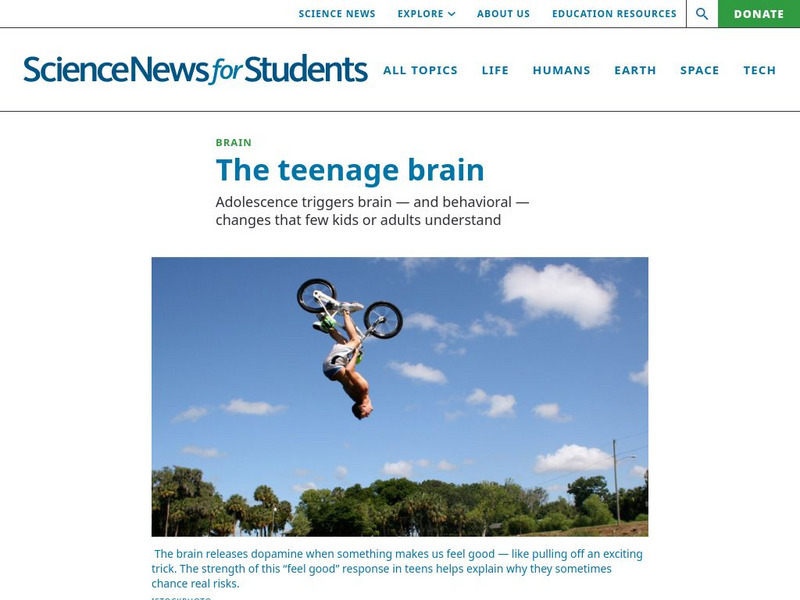Curated OER
Thought Log: Correcting Harmful Thoughts
A thought log helps people track daily events, their (possibly harmful) internal reactions, and the consequences and behaviors they experience in response to their own thoughts. The last column of the chart provides space to conceive...
Curated OER
The Science of Addition
Students examine the science of drug addition. In this health related lesson plan, students take a pre-assessment about drug addiction, then read and discuss an article about how some drugs affect the brain to cause addition. They will...
Curated OER
Teen and Decision Making
Young scholars examine how the brain develops. In this neurology lesson students read an article citing evidence that the different areas of the brain mature at different rates. They discuss emotional versus logical aspects of...
PBS
Pbs Learning Media: The Teenage Brain
Why do teenagers act the way they do? This video segment from FRONTLINE: "Inside the Teenage Brain" explores the work scientists are doing to explain some of the mysteries of teenage behavior.
Johns Hopkins University
New Horizons for Learning: Embryological Development
In this article, "Dr. Scheibel tells the fascinating story of how the brain develops in human beings from conception to birth. He makes clear that this complex, rapidly developing process is affected continually by the environment in...
Other
National Museum of Health and Medicine: Comparative Mammalian Brain Collections
This resource could be used for higher level biology or anatomy classes. There are over 100 different species of mammals represented and each has information about physical characteristics, distribution, and pictures of the brain. There...
Other
Temple University Med School: Ventricular System Development (Early)
Upper-level explanation of early human ventricular system development. Provides interactive labeled diagrams and description of weeks 4, 5, and 6 in embryo development.
Other
Temple Univeristy Med School: Ventricular System Development (Late)
Upper-level explanation of late human ventricular system development. Provides interactive labeled diagrams and descriptions at early, 4 months, and newborn stages.
PBS
Pbs Inside the Teenage Brain
"What's going on in there?" Science may help to explain the mysteries of the teen years. Take a look at what the experts have to say, review recent research, and check out an interactive illustration of the brain.
PBS
Pbs News Hour: New Studies of Adolescent Brains Challenge Assumptions
The traditional thought has been that the adolescent brain was similar to the adult brain. However, new studies show that the teen brain is fundamentally different than older brains. Learn the details behind the new findings .. how the...
Annenberg Foundation
Annenberg Learner: The Brain: Teaching Modules
A collection of 32 video learning modules on everything to do with the brain.
TeachEngineering
Teach Engineering: Human and Robot Sensors
Young scholars are provided with a rigorous background in human "sensors" (including information on the main five senses, sensor anatomies, and nervous system process) and their engineering equivalents, setting the stage for three...
TeachEngineering
Teach Engineering: Reflecting on Human Reflexes
Students learn about human reflexes, how our bodies react to stimuli and how some body reactions and movements are controlled automatically, without thinking consciously about the movement or responses. In the associated activity,...
American Museum of Natural History
American Museum of Natural History: Brain: The Inside Story
This exhibition documents how our brains sense, think, process emotions, and grow and change.
PBS
Wnet: Thirteen: The Secret Life of the Brain
This PBS special explores the brain from birth to old age. Take a look at snapshots of brain development at birth, as a child, as a teenager, as an adult, and in old age.
Other
Partnership for a Drug Free America: Parents Guide to the Teen Brain
A complete guide to the development of the teenage brain. Find out about typical teenage behaviors, and the science behind their brain development that makes them act in certain ways.
Scholastic
Scholastic: I Spy Games Area
Games and puzzles for early elementary school children. Great looking site with easy riddles, interactive observation and object search games. A few games will help student practice reading, i.e., match a written description of an object...
University of Washington
Neuroscience for Kids: Brain Development
A good site that covers the development of the brain prior to and following birth.
University of Washington
Neuroscience for Kids: Brain Games
Engaging site for K-12 students to learn more about how the brain functions-- and have some fun at the same time.
University of Washington
Neuroscience for Kids: Brain Games
Engaging site for K-12 students to learn more about how the brain functions-- and have some fun at the same time.
University of Washington
Neuroscience for Kids: Worksheets
This university site contains lessons, games and worksheets that are ready to print out.
Society for Science and the Public
Science News for Students: The Teenage Brain
Teens and adults have different brains. Find out what makes the teenage brain so unique.
TED Talks
Ted: Ted Ed: How Playing an Instrument Benefits Your Brain
When you listen to music, multiple areas of your brain become engaged and active. But when you actually play an instrument, that activity becomes more like a full-body brain workout. What's going on? Anita Collins explains the fireworks...
Other
The Kansas City Kid Info Zine: Child Brain Development
This site contains an article that discusses ten things that parents can do to provide a healthy, stimulating environment for their baby's brain development.






